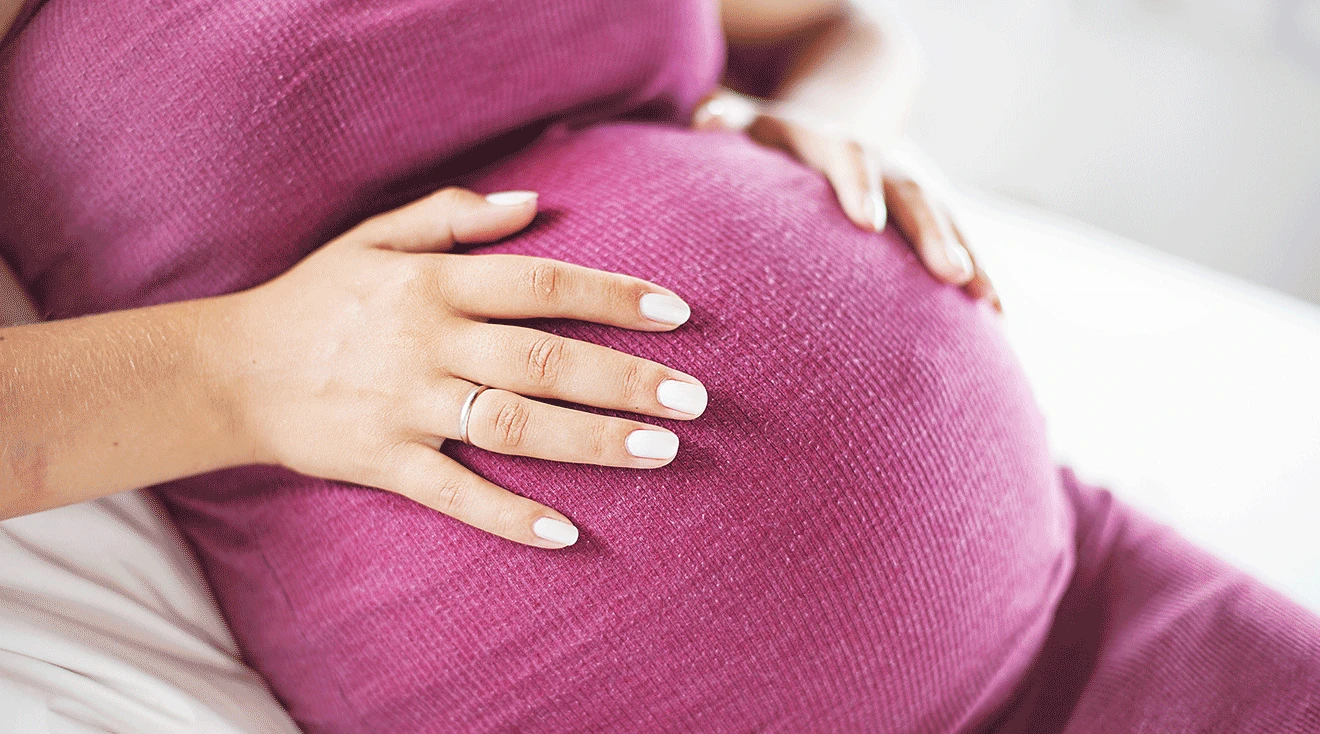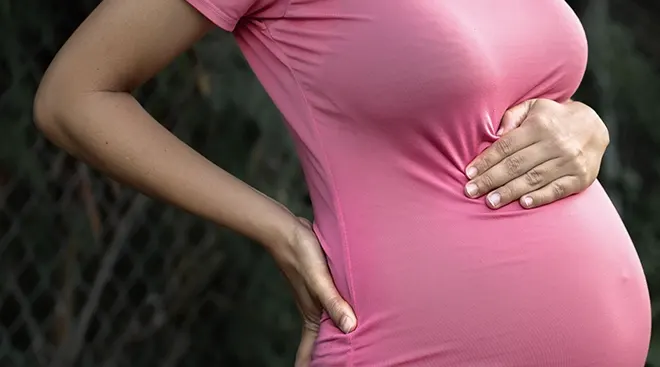How to Relieve Swollen Hands During Pregnancy
While showing off your growing bump and pregnancy glow can be fun, dealing with symptoms like swollen hands during pregnancy is anything but. After all, it can feel super weird to do basic things like text, pick up a fork or brush your hair.
Unfortunately, swollen hands—and feet—are all too common in pregnancy. “It’s very common to notice that,” says Christine Greves, MD, FACOG, an ob-gyn at the Winnie Palmer Hospital for Women & Babies in Orlando. “I even have some patients who can no longer wear their wedding bands, so they [might] wear one of the jelly ones—and one patient even converted [hers] to an expandable band that her mother-in-law used when she was pregnant.”
Swollen hands typically develop gradually, and are more common during the third trimester, says Manisha Gandhi, MD, an ob-gyn and maternal-fetal medicine specialist at Texas Children’s Hospital in Houston. You’re also more likely to see them toward the end of the day, she says.
Ahead, learn about the potential causes behind your puffiness, plus doctor-recommended tips on treating swollen hands during pregnancy.
There are several factors that can lead to swollen hands during pregnancy. “Keep in mind that the swelling is not exclusive to just the hands,” Greves says. “It’s also possibly felt in the feet.” According to experts, causes can include:
- Fluid retention. Fluid tends to build up in your body during pregnancy due to your blood volume doubling and changing hormones, according to UnityPoint Health. Increased fluid retention is more likely to be an issue in the third trimester, says Gandhi.
- Carpal tunnel syndrome. Sometimes, swelling in the wrists can be a symptom of carpal tunnel syndrome, a nerve condition that’s much more common during pregnancy, say the experts. Carpal tunnel syndrome can cause pain, tingling and numbness in the wrists and hands, according to UT Southwestern Medical Center.
- Preeclampsia. Swollen hands during pregnancy can sometimes be a sign of preeclampsia, or high blood pressure during pregnancy—particularly if there are other symptoms, says Gandhi. Other symptoms of preeclampsia can include a headache that won’t go away, changes in vision, abdominal pain and new-onset nausea and vomiting, she says. “It’s important to talk to one’s provider and monitor blood pressure if there’s a concern or associated symptoms,” Gandhi says.
Experts say that the following tips are likely to help with swollen hands during pregnancy:
- Drink plenty of water. Staying well-hydrated can reduce fluid retention and improve your kidney function, Greves says.
- Avoid excess salt. Sodium causes your body to retain water, says UnityPoint Health. You can also try to cut back on processed foods and caffeine—both of which cause water retention—and amp up the protein, which helps balance the amount of fluid in your body.
- Massage your hands. This can temporarily relieve some of the swelling, “but typically it will return,” Gandhi says.
- Don’t wear tight items. “Sadly, that may be a wedding ring or just one of your favorite rings or bracelets,” Greves says. “That constriction can contribute to [swelling].”
- Try to sleep on your left side. Sleeping on your left side allows the blood in your body to return to the inferior vena cava, Greves says. (That’s the large vein that’s responsible for returning blood from your lower extremities to your heart.) “It ultimately helps with the swelling,” she says.
- Use a wrist brace. If you have carpal tunnel syndrome, it can be helpful to wear a wrist guard during the day, says G. Thomas Ruiz, MD, lead ob-gyn at MemorialCare Orange Coast Medical Center in Fountain Valley, California. “[This] can put the hand and wrist into a position where you don’t get as much nerve compression, and should help with the swelling,” he says.
While having swollen hands during pregnancy is common, if it comes with other symptoms, it could be a sign of an underlying condition that needs to be addressed. Gandhi recommends reaching out to your doctor if your hands become painful, or if the swelling comes on or increases suddenly. She also suggests being on the lookout for symptoms of preeclampsia, like headaches that don’t go away, vision changes, abdominal pain or new nausea and vomiting.
“Swelling is typically in both hands, so isolation in one hand should also be evaluated,” Gandhi adds. Greves says it’s also important to flag your swollen hands to your healthcare provider if they’re bothering you. “Reach out if it’s concerning to you,” she says. “We’re here for you if you have any concerns.”
Also, keep in mind that you may be dealing with swelling for a while after you deliver baby. “After you deliver, the swelling can get worse,” Ruiz says. “It can take up to six weeks to go away.”
Please note: The Bump and the materials and information it contains are not intended to, and do not constitute, medical or other health advice or diagnosis and should not be used as such. You should always consult with a qualified physician or health professional about your specific circumstances.
Plus, more from The Bump:
Manisha Gandhi, MD, is an ob-gyn and maternal-fetal medicine specialist at Texas Children’s Hospital in Houston. She received her medical degree from the University of Texas Health Science Center at San Antonio.
Christine Greves, MD, FACOG, is an ob-gyn at the Winnie Palmer Hospital for Women & Babies in Orlando. She received her medical degree from the University of South Florida College of Medicine.
G. Thomas Ruiz, MD, is the lead ob-gyn at MemorialCare Orange Coast Medical Center in Fountain Valley, California. He received his medical degree from University of California Irvine School of Medicine.
UnityPoint Health, Things That Make You Swell When You’re Pregnant
UT Southwestern Medical Center, Carpal Tunnel Syndrome and Pregnancy Go Hand in Hand, October 2020
Learn how we ensure the accuracy of our content through our editorial and medical review process.
Navigate forward to interact with the calendar and select a date. Press the question mark key to get the keyboard shortcuts for changing dates.




















































